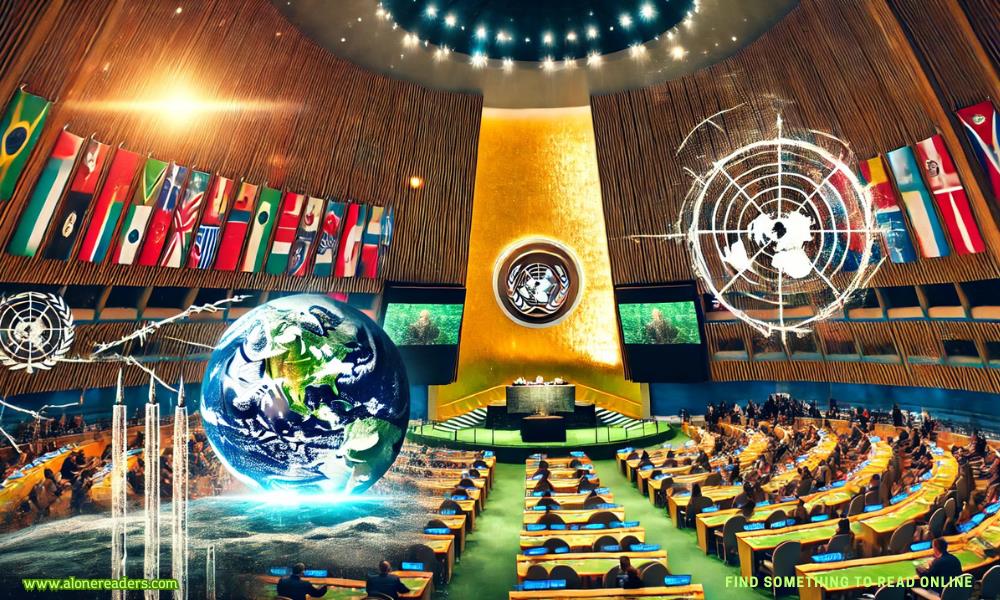
The 79th session of the United Nations General Assembly (UNGA) opened this week with a sharp focus on two critical global challenges: climate change and ongoing conflicts across the world. Leaders from around the globe have gathered in New York City to discuss these pressing issues in an effort to find viable solutions and foster greater international cooperation.
As the world continues to witness unprecedented environmental disasters, climate change took center stage during the opening speeches. With record-breaking heatwaves, floods, and wildfires devastating regions from the Americas to Asia, the urgency to combat climate change has never been more apparent.
In his opening remarks, UN Secretary-General António Guterres made it clear that the window to reverse the most catastrophic impacts of climate change is rapidly closing. "Humanity has opened the gates of hell," Guterres stated, as he urged member states to take bolder steps toward reducing carbon emissions and transitioning to renewable energy.
The Paris Agreement, now in its eighth year, was a focal point of discussion. While progress has been made, many countries have failed to meet their climate pledges, sparking criticism from environmental activists and other member states. The upcoming Conference of Parties (COP29) is expected to build on the momentum of this General Assembly session, as global leaders strive to strengthen their climate commitments.
Developing countries, particularly those in the Global South, continue to bear the brunt of climate change, despite contributing the least to global carbon emissions. During the session, leaders from vulnerable island nations, including Tuvalu and the Maldives, reiterated their calls for stronger support from wealthier nations. They emphasized the need for immediate action on adaptation funding and technology transfer to help them cope with rising sea levels and increasingly severe weather patterns.
One of the key issues discussed at the 79th session is climate finance. While developed nations had previously pledged $100 billion annually by 2020 to help developing countries mitigate and adapt to climate change, that target remains unmet. The session has already seen several countries, including Canada and Germany, reaffirm their commitment to meeting these financial promises, though concerns remain about the pace of progress.
Discussions also touched on the transition to green energy. Renewable energy sources like wind, solar, and hydroelectric power were hailed as essential to curbing global warming. However, several nations, particularly those heavily reliant on fossil fuels, continue to grapple with the economic impacts of such a transition. Saudi Arabia and Russia, for instance, voiced concerns over the rapid shift away from oil and gas, emphasizing the need for a more gradual approach to energy transition that doesn't undermine their economies.
The General Assembly highlighted the role of technology in addressing climate change. Innovations in renewable energy, carbon capture, and climate-resilient infrastructure were discussed as critical tools for nations to meet their climate goals. Tech companies and environmental organizations have been called upon to collaborate with governments to develop solutions that can be scaled up and implemented worldwide.
While climate change dominated the agenda, the General Assembly also turned its attention to ongoing global conflicts that continue to cause devastation across several regions.
The conflict in Ukraine, now well into its second year, was a major point of focus. Ukrainian President Volodymyr Zelensky addressed the Assembly remotely, calling for increased international support to defend his country against Russian aggression. Zelensky emphasized the devastating human toll of the war and urged member states to continue providing military aid, humanitarian assistance, and diplomatic support.
Similarly, the conflict in Sudan was highlighted as another urgent humanitarian crisis. Since violence erupted earlier this year, millions of Sudanese civilians have been displaced, with widespread reports of atrocities committed by rival factions. The situation has been further exacerbated by the ongoing cholera outbreak, which poses an additional threat to the already fragile healthcare infrastructure.
Other conflicts discussed included the Israeli-Palestinian conflict, the ongoing civil war in Yemen, and the political instability in Haiti. During these discussions, many member states emphasized the need for peaceful negotiations, increased humanitarian aid, and international mediation to resolve these prolonged conflicts.
Conflicts and climate disasters have also triggered mass migration across regions. One of the side events of the General Assembly focused on the plight of refugees and migrants. The United Nations High Commissioner for Refugees (UNHCR) reported that over 100 million people are currently displaced worldwide, a record high.
The discussions underscored the need for a coordinated global response to refugee crises. Member states were urged to uphold international refugee laws and provide asylum to those fleeing conflict zones and environmental disasters. Several nations, including Germany, Turkey, and Canada, have pledged additional resources to support displaced populations.
A recurring theme throughout the 79th session has been the importance of multilateralism in addressing both climate change and conflicts. Several world leaders, including French President Emmanuel Macron and Indian Prime Minister Narendra Modi, stressed that no country can tackle these global challenges alone. They called for enhanced cooperation through international institutions like the United Nations and urged member states to honor their commitments to peace, security, and sustainable development.
As the 79th session of the General Assembly continues, it remains clear that the path forward will be complex. While many nations have expressed a desire for stronger cooperation, geopolitical tensions and economic challenges pose significant barriers to achieving meaningful progress.
The General Assembly will continue to discuss these critical issues over the next few weeks, with the aim of producing actionable resolutions. However, with the rapidly worsening impacts of climate change and the persistence of global conflicts, the world will be watching closely to see if leaders can turn these discussions into concrete actions.
In the words of UN Secretary-General Guterres: "This is our moment in history to make a choice—either we unite as a global community to confront our greatest challenges or we face the consequences of inaction."
The world’s eyes are now on the Assembly to see whether unity and resolve will prevail.